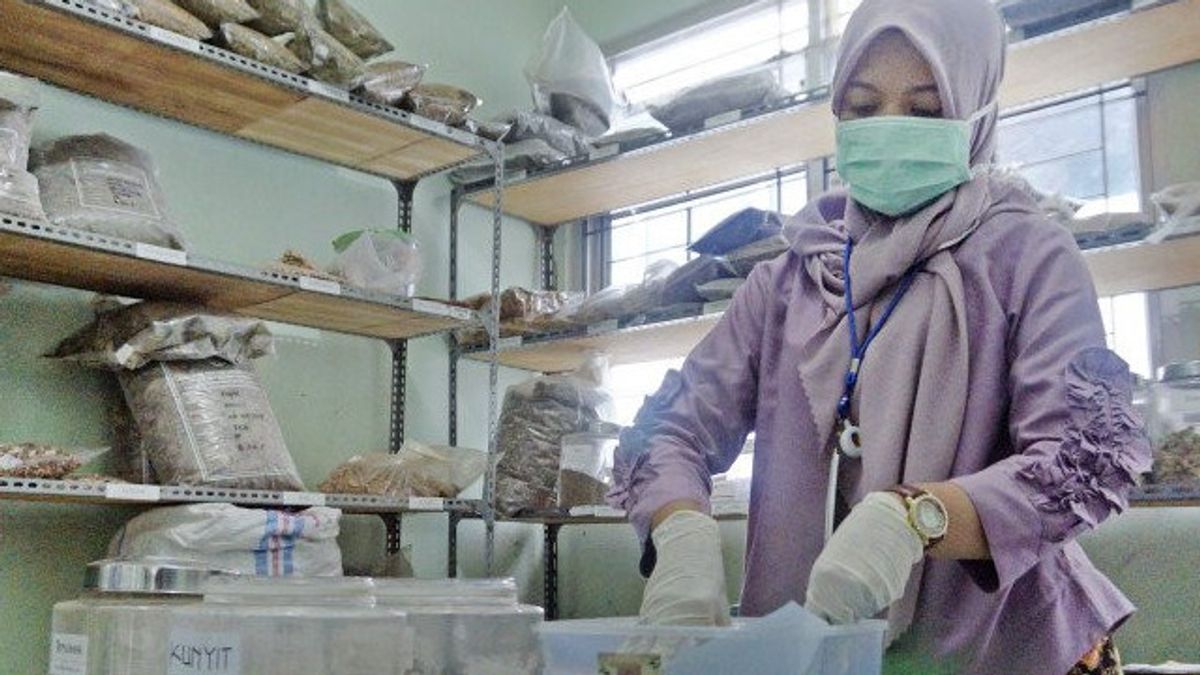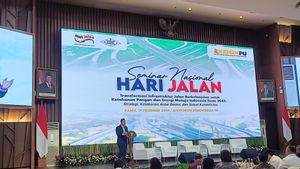JAKARTA - Lecturer at the Faculty of Medicine, Muhammadiyah University, Purwokerto, dr. Yeni Bahar M.Si (Herbal) said that an educational system is needed with knowledge in the herbal field so that doctors can prescribe drugs that come from Indonesian nature called phytopharmaca. "Because we phytopharmaca the medicine is prescribed by doctors because doctors have a medical background for disease diagnosis, so it is hoped that the doctor's background will diagnose it can provide drugs according to anamnesis, physical conditions and other supporting conditions," Yeni said in a health discussion on the anniversary of the Association of Indonesian Traditional Medicine and Herbal Medicine Developers (PDPOTJI) which was followed online in Jakarta, Sunday.
Phytopharmaca is a drug with herbal mixtures prescribed and clinical trials of safety and efficacy. Phytopharmaca is also a drug that has been tested in the Food and Drug Supervisory Agency (BPOM) and has efficacy as well as safety and assurance of the availability of raw materials. Doctors who graduated from the University of Indonesia said that Indonesia, which has hundreds of hectares of herbal plants, could potentially increase its function if many medical faculties studied it as a curriculum in its education. Yeni also said that all plants can have many active substances, isolated with research and synthesis. It is also known that medicinal plants are widely used side by side with conventional drugs, for example for treatment of cancer therapy, heart disease, and stimulants.
SEE ALSO:
However, various challenges are still faced to implement the use of herbal medicines equivalent to conventional drugs ranging from the availability of medicinal raw materials and high research costs. "Research towards phytopharmaca is not only from universities but there must be cooperation from other pharmaceuticals. The use of drugs with natural ingredients is also limited, which is also standardized, which is concerned that the sources are different," said Yeni. Other challenges faced are also the lack of medical graduates who study herbal medicines. The government's efforts in the law to accelerate the use of phytopharmaca to the public, also make important faculty or study programs apply the appropriate curriculum competence. Patients or doctors also need to understand conventional drugs can give excessive reactions to the body, so that most people still choose traditional medicines that are considered safe. This is where the role of doctors is important to remind the right doses in the use of herbal medicines and prescribing phytopharmaca, which can be for preventive treatment to strengthen immunity, curative and palliative for those who are treated. "Dosing is needed, if excessive, there are side effects of improper doses. Because the assumption of patients, the more and faster consumption will recover," he said. The more and faster the more medical facts Yeni hopes that more herbal medicine will be held at other universities and private sectors, so that it can meet the needs of the competence of herbal doctors or herbal medicine in Indonesia so that herbal medicine can host in their own country.
The English, Chinese, Japanese, Arabic, and French versions are automatically generated by the AI. So there may still be inaccuracies in translating, please always see Indonesian as our main language. (system supported by DigitalSiber.id)
















